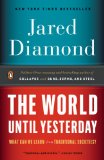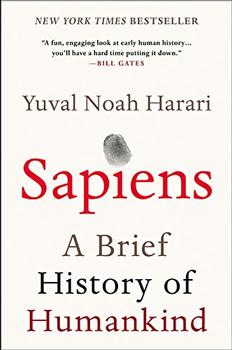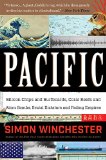Summary | Excerpt | Reviews | Beyond the book | Read-Alikes | Genres & Themes | Author Bio

Critics' Opinion:
Readers' Opinion:
First Published:
Dec 2012, 512 pages
Paperback:
Oct 2013, 512 pages
 Book Reviewed by:
Book Reviewed by:
Jennifer G Wilder
Buy This Book
Jared Diamond is a big-picture thinker with the sweeping imagination of an old-fashioned polymath. His previous bestsellers, Guns, Germs, and Steel and Collapse, have earned him the status of a visionary for their skill at going for the jugular of our biggest cultural insecurities – about the environment, about the post-imperialist world, about modernity. The World Until Yesterday is the latest installment in the conversation, bringing insights from anthropology, evolutionary biology, linguistics, and political science to explore ways in which the human race can find help for the future in the past.
The book is framed with an interesting conceit. Diamond explains that humans have been organizing themselves into nation states for a relatively short period of time, a mere blip on the radar when you consider that Homo sapiens have been roaming the planet for around 100,000 years. Before the rise of "state governments," as Diamond calls them, there were "traditional societies," small bands and tribes like those that still exist in remote regions such as the mountains of Papua New Guinea and the Amazonian rainforest.
The book's subtitle asks, "What Can We Learn from Traditional Societies?", and Diamond seeks answers as he sifts through the available data on traditional modes of justice, warfare, child-rearing, nutrition and other cultural practices. He argues that most of what we know about humanity, scientifically speaking, is based on work with WEIRD subjects – Western, Educated, Industrial, Rich, and Democratic. Traditional societies, as they existed at the time of "first contact" with the West, or as we know them from ethnographic work or the historical record, are like human experiments in progress, rich with alternative perspectives.
Some of the most riveting parts of the book read like a travel memoir, as Diamond recalls his experiences doing research in the remote forests of Papua New Guinea. Some parts of the country were unknown to the West until the 1930s, when military expeditions and research forays "discovered" villagers living the way they had lived, Diamond posits, for millennia. Personal observations ground and center the book's argument throughout, and Diamond's complicated affection for the jungles of Papua New Guinea is palpable. In spite of the danger of being murdered by a hostile stranger, or of falling ill out of reach of emergency medical care, he asserts that "being in New Guinea is like seeing the world briefly in vivid colors, when by comparison the world elsewhere is gray."
This is no traditional ethnography, however. Diamond supports his own fieldwork with data from studies of traditional peoples around the world, organizing his general areas of interest into large surveys. He sets about this task with a style that reads as earnest and forthright, rather than fleet or clever, and can plod at times as he sorts through a miscellany of material. In the early chapters on warfare, reading becomes a hard slog as the names of esoteric village factions and battles pile up. But in time the peripatetic nature of the book's wanderings from culture to culture and topic to topic come to seem like an edifying ramble, the meandering commentary of a far-reaching mind working through things it finds curious.
Diamond paints with a very broad brush, which means that while the scope of his work is exciting, the complexity of the details can be lost. The gaps left by the broad-brush approach grow frustrating. Diamond doesn't engage in the history of his question ('What can we learn from traditional societies?'), for one thing. He isn't interested in meta-debate, but the lack of a recent historical perspective reads like a glaring omission. And some topics are too lightly touched on, perhaps out of necessity (He has struggled to keep the book to a reasonable size as it is – the notes are only available online.). The chapter on childrearing seemed oddly slight, for instance. Almost any parent who has been to a La Leche League meeting or picked up a parenting magazine will know more about traditional breastfeeding and co-sleeping than Diamond covers. And is it news that the standard Western diet is causing an epidemic of diabetes? "It's worth repeating the truth," Diamond says as he lays out the facts about how to fight this trend. "We already know enough to warrant our being hopeful, not depressed." The World Until Yesterday gathers a wealth of material for asking the big questions, but the specifics of the answers are left up in the air.
For a TED talk by Jared Diamond about why societies collapse, click on the video below:
![]() This review was originally published in The BookBrowse Review in January 2013, and has been updated for the
October 2013 edition.
Click here to go to this issue.
This review was originally published in The BookBrowse Review in January 2013, and has been updated for the
October 2013 edition.
Click here to go to this issue.

If you liked The World Until Yesterday, try these:

by Yuval Noah Harari
Published 2018
A groundbreaking narrative of humanity's creation and evolution that explores the ways in which biology and history have defined us and enhanced our understanding of what it means to be "human."

by Simon Winchester
Published 2016
Pacific is a paean to this magnificent sea of beauty, myth, and imagination that is transforming our lives.





The Flower Sisters
by Michelle Collins Anderson
From the new Fannie Flagg of the Ozarks, a richly-woven story of family, forgiveness, and reinvention.

The House on Biscayne Bay
by Chanel Cleeton
As death stalks a gothic mansion in Miami, the lives of two women intertwine as the past and present collide.

The Funeral Cryer by Wenyan Lu
Debut novelist Wenyan Lu brings us this witty yet profound story about one woman's midlife reawakening in contemporary rural China.
Your guide toexceptional books
BookBrowse seeks out and recommends the best in contemporary fiction and nonfiction—books that not only engage and entertain but also deepen our understanding of ourselves and the world around us.